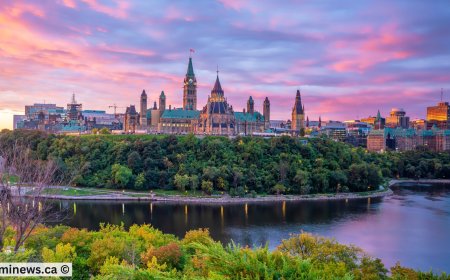Canada’s Controversial Immigration Shake-Up: Canada Just Passed a New Immigration Law
Canada’s Strong Borders Act reshapes immigration policy. Learn what the bill proposes, why it’s controversial, and what it means for Canada Immigration.

Canada Immigration Under Scrutiny: The Strong Borders Act Sparks National Debate
Canada Immigration is once again in the spotlight as the federal government introduces sweeping new legislation—the Strong Borders Act. This 127-page bill, tabled by Public Safety Minister Gary Anandasangaree on June 3, 2025, promises to tighten security, curb illicit drug trade, and reinforce border control. However, it also brings with it a storm of controversy. As immigration remains a vital topic for Canada’s future, understanding the significance of this new bill is crucial for anyone navigating Canadian immigration or following national policy debates.
Significance of the Strong Borders Act
1. Shift in Border and Mail Surveillance Powers
One of the most significant aspects of the Strong Borders Act is its extension of law enforcement powers. The bill grants Canada Post and police greater authority to inspect mail and packages, including opening parcels during investigations. This is largely intended to combat the fentanyl crisis, as criminal organizations have been using postal services to traffic synthetic opioids.
Additionally, the Canadian Coast Guard's role would be expanded through amendments to the Oceans Act, allowing it to perform security patrols and gather intelligence—a move that mirrors security structures seen in countries like the U.S. According to the Government of Canada’s official release, these measures aim to equip law enforcement with tools to tackle transnational crime.
2. Increased Executive Power and Immigration Document Control
A more contentious element is the provision allowing authorities to pause or cancel immigration applications, even retroactively. This includes the power to suspend or modify immigration documents at will, drawing criticism for undermining due process and creating uncertainty for thousands of applicants.
Immigration experts have flagged this move as a serious breach of civil liberties. Critics like MP Jenny Kwan have warned that the legislation gives the government sweeping control without transparent oversight, possibly violating international obligations. Such provisions risk disrupting the lives of applicants already in the system and could harm Canada's reputation as a humanitarian leader.
3. Restriction of Asylum Access
The Strong Borders Act would bar asylum seekers who have been in Canada for over a year from applying for protection. This rule, retroactive to June 24, 2020, could disqualify thousands of undocumented individuals, regardless of whether their circumstances have changed since arrival.
Law professor Sharry Aiken argues that this measure mirrors the U.S.'s one-year rule, essentially shutting the door on legitimate refugee claims due to procedural technicalities. This marks a clear departure from Canada's historically more compassionate asylum framework. The Toronto Star highlights how these new rules could make life more precarious for vulnerable migrants.
Explore how this could impact those applying through Canada's existing systems like the Express Entry.
4. Amplified Intelligence Sharing with the U.S.
The bill proposes increased information-sharing between Canadian and U.S. intelligence agencies, further aligning Canada’s immigration enforcement policies with American standards. While this might enhance bilateral security efforts, critics argue it could also result in reduced privacy protections for migrants and refugees.
Immigration analyst David Bier from the Cato Institute says the bill represents Canada "moving more in the direction of the American immigration system," where executive power often overrides judicial review.
5. Public Safety Framed as Political Strategy
While the federal government insists the bill is a response to public demand for stronger security, several experts argue that it’s politically motivated. The legislation follows U.S. President Donald Trump’s statements accusing Canada of allowing cross-border fentanyl trafficking and harboring Mexican cartels.
Former CBSA officer Kelly Sundberg believes the bill is more about "appeasing the Trump Administration" than genuinely improving public safety. If true, this raises questions about Canada’s independent policy-making and the influence of international relations on domestic law.
The Strong Borders Act is not just another legislative proposal; it’s a seismic shift in how Canada manages immigration, asylum, and border security. While it promises enhanced national safety and streamlined enforcement, its broader implications for civil liberties, asylum protections, and Canada’s international image cannot be ignored.
As debate continues, one thing is clear: Canada Immigration is entering a new phase, and both hopeful immigrants and policy followers must stay informed.
Want to understand how this could affect your immigration plans? Book a personalized consultation with A2Zimmi today for expert guidance.
What's Your Reaction?
 Like
0
Like
0
 Dislike
0
Dislike
0
 Love
0
Love
0
 Funny
0
Funny
0
 Angry
0
Angry
0
 Sad
0
Sad
0
 Wow
0
Wow
0









































































